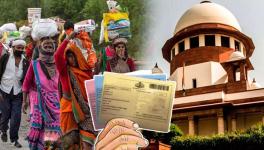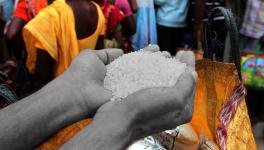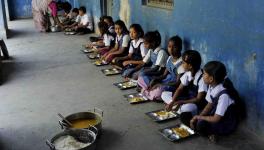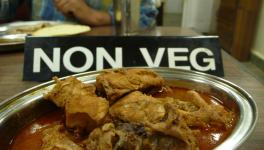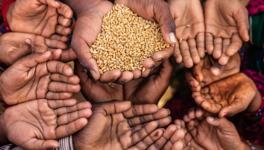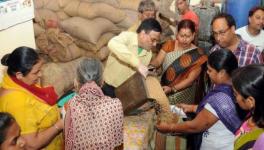Indian Civil Society Organisations Hold Dialogue Opposing UN Food Security Summit
On September 3 and 4, India Counter Dialogue on the United Nations Food Systems Summit (UNFSS) was organised by Jan Sarokar. During the Dialogue, experts discussed the implications of the UN-Food Systems Summit (UNFSS) on the people of India, especially on the marginalised communities. It was also a critique of the global push towards agribusiness.
Jan Sarokar is a network of progressive civil society organisations, social movements, mass organisations, academics and other experts committed to reclaiming and rebuilding robust, democratically accountable public interest processes and systems.
In 2019, the United Nations Secretary-General announced that the UNFSS will be held to “transform the way the world produces, consumes and thinks about food”, putting the focus on realising the Sustainable Development Goals. The UNFSS is scheduled to be held on 23 September 2021.
The People's Health Movement’s (PHM’s) Food and Nutrition thematic circle has called for a boycott of the UN Food Systems Summit 2021 because of corporate influence and the marginalisation of civil society voices. Civil Society and Indigenous Peoples’ Mechanism (CSM) for relations with the UN Committee had also called for mobilisation to challenge the Summit and reclaim people’s sovereignty over food systems.
According to civil society organisations, the course of the Summit has been permeated with corporate influence to drive shifts in global food governance that threaten food sovereignty and security for large sections of marginalised and vulnerable populations. On Saturday, September 4, during a session on Food and Nutrition, Biraj Patnaik, Executive director, National Foundation for India, spoke about this. He said, "Those of us who have been closely following the world food summit very closely have seen that it's in complete disarray."
He added that there are several reasons for this disarray. According to Patnaik, fundamentally, the interests of big business, big food, big agriculture and agribusiness across the world are inimical or against the interests of the constituents, the large vast majority of consumers and producers who form the backbone of the global food system. He said, "and therefore, there is this dynamic tension between these bodies and the push towards corporatisation and a corporate control of agricultural and food systems and a vision for food systems, that is completely different in these two major constituencies."
What are these two major constituencies? On one hand are the producers, the small landholders, women, Dalits, indigenous people across the world. 70% of them are small-scale producers. On the other hand, there are the corporates, whose interests are only in the realm of profit-making from food and nutrition.
Another reason behind the UNFSS being in complete disarray, Patnaik added, is that even though it is a summit that is being held in the backdrop of Covid-19, there is not a single mention of Covid-19 or its impacts on the lives and livelihoods. It also doesn't mention how the pandemic has affected food systems globally and the changes that need to be made to ensure that Covid-19 and the new realities that confront the people across the world are taken into account, particularly, the economic hit and the push towards starvation that vast number of people in Latin America, Africa, Asia are now facing.
Patnaik concluded by saying, "This Summit is essentially being reduced to a series of technocratic solutions that do not accommodate what is at the heart of the Right to Food, which is, human rights."
Dr Sylvia Karpagam, a public health doctor, spoke about how policies impact communities, especially in the Indian context. She spoke about how in a country like India, the decisions about who can eat what kind of food is being made by a group based upon their ideology and personal preferences. Dr Karpagam said, "We do not want those to be the leading voices in making our food policies. Also if there are consequences in terms of health or in terms of nutrition, will the people making these decisions be held accountable?"
She also spoke about the EAT-Lancet Commission Report 2019 and its influence on the summit. In the EAT-Lancet Commission Report 2019, India was praised for being a good model for plant-based diets. It feeds into the false premise that “traditional diets” in countries like India include little red meat, which might be consumed only on special occasions or as minor ingredients in mixed dishes. EAT-Lancet Commission’s representative, Brent Loken, during the launch event of the report in New Delhi in 2019, said that “India has got such a great example” in sourcing protein from plants.
The EAT-Lancet Commission has 37 commissioners from across the world, and two of them, Srinath Reddy and Sunita Narrain, are from India. According to Dr Karpagam, 31 out of the 37 commissioners are vegetarian or vegan, and had, through their work, promoted vegetarian and anti-meat views even before joining the Commission. Hence, according to her, the commission lacked the diversity that it should have had.
The Summit has five Action Tracks:
1. Ensure access to safe and nutritious food for all
2. Shift to sustainable consumption patterns
3. Boost nature-positive production
4. Advance equitable livelihoods
5. Build resilience to vulnerabilities, shocks and stress
The Indian government has set up a steering committee, headed by Professor Ramesh Chand and Niti Aayog to overlook the UNFSS-India process. As a member country, the India-national level dialogue was organised on April 12, 2021. A website has also been set up by the government. According to Jan Sarokar, the national dialogue is part of the attempts of the UNFSS organisers to get national-level buy-in from policymakers, CSOs, academics, etc.
The Government of India (GoI) has chosen Action Track 4—Advance Equitable Livelihoods—as its core focus for showcasing best practices and challenges in the Food Systems Summit. According to the GoI, "Action Track 4 aims to contribute to the elimination of poverty by promoting full and productive employment and decent work for all actors along the food value chain, reducing risks for the world’s poorest, enabling entrepreneurship and addressing the inequitable access to resources and distribution of value. Action Track 4 seeks to improve resilience through social protection and seek to ensure that food systems “leave no one behind.”
According to concept notes released by the Union government, "The aim is to achieve solutions to advance equitable livelihoods in food systems. For food systems to advance equitable livelihoods, we must tackle poverty from a multidimensional perspective and focus on the groups whose livelihoods (women, youth, indigenous peoples, the disabled, seasonal labourers, etc.) are most limited by current food system practices and the discriminatory practices and norms that limit equitable livelihoods."
It added, "Changing power relations in food systems is also critical, and these will require changes both in the formal spheres (market negotiations, group membership, etc.) and in informal spheres. Finally, the shift involves transforming structures, including confronting social norms."
However, despite these words, according to Jan Sarokar, the transformations pushed through the UNFSS in the global architecture of food systems governance will have dangerous implications. They said in a statement the Summit must be opposed by the peoples’ movements across the globe.
The statement said, "The opposition to the UNFSS is primarily centred against a corporate-driven unjust food system, which directly threatens the survival of the small-scale producers, fish workers, forest people, livestock farmers, pastoralists and impacts poor consumers. It raises serious concerns regarding nations losing policy autonomy and the neoliberal responses to tackling hunger, malnutrition, loss of livelihoods and public health."
Get the latest reports & analysis with people's perspective on Protests, movements & deep analytical videos, discussions of the current affairs in your Telegram app. Subscribe to NewsClick's Telegram channel & get Real-Time updates on stories, as they get published on our website.









